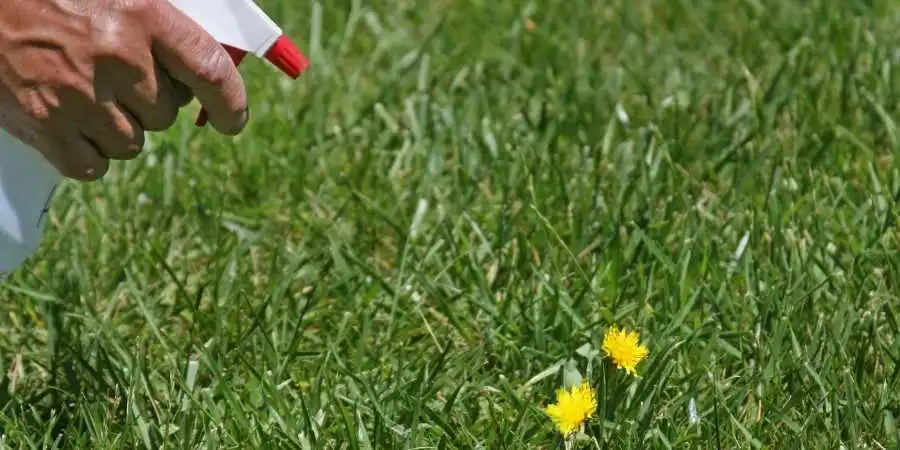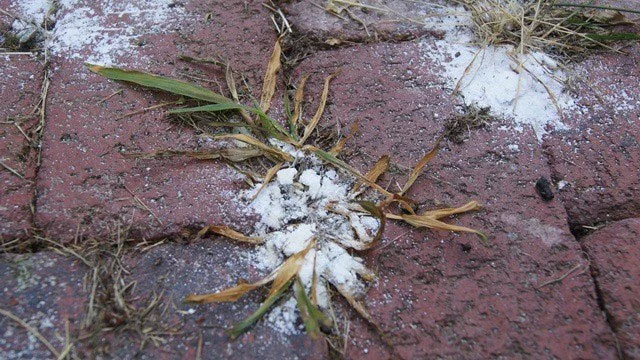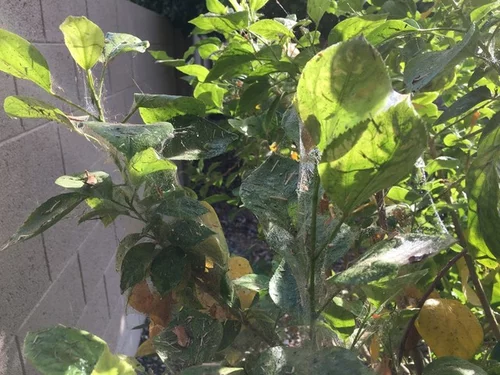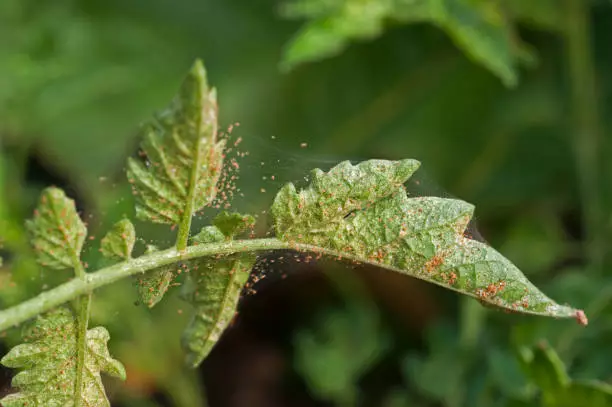Bleach is a common household cleaning agent that is used to disinfect surfaces and remove stains. It is also used in many industrial applications, including the pulp and paper industry. However, some people have wondered whether bleach can be used to kill weeds and grass.
While bleach is effective at killing many types of bacteria and viruses, it is not an effective weed killer. Bleach can kill some weeds, but it is not a reliable or effective method of weed control. In fact, using bleach to kill weeds can be dangerous, as it can harm other plants in the area and contaminate the soil.
There are many other methods of weed control that are more effective and safer than using bleach. These include pulling weeds by hand, using herbicides, and using natural weed control methods such as mulching and planting ground cover. By using these methods, you can effectively control weeds and maintain a healthy garden or lawn without resorting to harmful chemicals like bleach.
Understanding Bleach and Its Effects
Bleach is a highly alkaline and corrosive substance that can be toxic if ingested or inhaled in large quantities.
When used as a weed and grass killer, bleach works by disrupting the plant’s cellular processes and causing it to dry out and die. The active ingredient in bleach, chlorine, reacts with the plant’s organic matter, breaking it down and causing the plant to lose its ability to produce energy and grow.
It is important to note that bleach is not selective in its killing abilities and will kill any plant it comes into contact with, including desirable plants in your garden or lawn. Additionally, bleach can have negative effects on the soil and surrounding environment, as it can alter the pH balance and kill beneficial microorganisms.
When using bleach as a weed and grass killer, it is important to follow safety precautions, such as wearing gloves and protective clothing, and avoiding using it near water sources or areas where children or pets may come into contact with it.
Overall, while bleach can be an effective weed and grass killer, it should be used with caution and only in areas where its negative effects on the environment and surrounding plants can be minimized.
How Bleach Affects Weeds and Grass
Effect on Weeds
Bleach is a common household cleaning agent that can also be used as a herbicide to kill weeds. Bleach works by damaging the foliage of the plant, causing it to turn brown and die. However, bleach does not kill the roots of the plant, so weeds may sprout again after some time.
It is important to note that bleach can also harm desirable plants and vegetation, so it should be used with caution. It is recommended to only use bleach as a herbicide on weeds that are growing in areas where no desirable plants are present.
Effect on Grass
Bleach can also be used to kill grass, but it is not as effective as other herbicides. Bleach works by bleaching the leaves of the grass, causing them to turn white and die. However, bleach does not kill the root of the grass, so it may sprout again after some time.
It is important to note that bleach can also harm desirable grass and vegetation, so it should be used with caution. It is recommended to only use bleach as a herbicide on grass that is growing in areas where no desirable grass is present.
In conclusion, bleach can be used as a herbicide to kill weeds and grass, but it should be used with caution as it can also harm desirable plants and vegetation. Bleach only damages the foliage of the plant and does not kill the root, so weeds and grass may sprout again after some time.
Using Bleach as a Weed and Grass Killer
Bleach is a common household cleaner that can be used for a variety of purposes. Some people have used bleach as a weed and grass killer, but is it effective? Let’s take a look at the pros and cons of using bleach as a weed and grass killer.
Pros
- Bleach can be effective at killing weeds and grass in certain situations.
- It can be a cheap and easily accessible solution.
- It can be used on a variety of surfaces such as gardens, patios, driveways, gravel, walkways, pavements, and patio pavers.
- It can be used to kill weeds and grass in cracks and crevices.
Cons
- Bleach is a nonselective herbicide, meaning it will kill any plant it comes into contact with, including desirable plants in your garden.
- It can be harmful to the environment and can contaminate soil and water sources.
- Bleach can be dangerous if not used properly and can cause skin and eye irritation.
- It may not be effective on all types of weeds and grasses.
How to Use Bleach as a Weed and Grass Killer
If you decide to use bleach as a weed and grass killer, it is important to use it properly to avoid any harm to yourself or the environment. Here are some tips:
- Dilute the bleach with water to create a solution that is less harmful to the environment and to reduce the risk of skin and eye irritation. A good ratio is one part bleach to ten parts water.
- Use a garden sprayer or spray bottle to apply the solution to the weeds and grass you want to kill. Be careful not to spray any desirable plants.
- Apply the solution on a dry and sunny day to ensure that it is effective.
- Repeat the application as necessary until the weeds and grass are completely dead.
Homemade Weed Killer
If you are looking for a non-toxic and eco-friendly alternative to bleach, you can make your own weed killer using household ingredients such as vinegar, salt, and dish soap. This homemade weed killer is nonselective and can be used on a variety of surfaces.
To make the weed killer, mix one gallon of white vinegar, one cup of table salt, and one tablespoon of dish soap in a garden sprayer or spray bottle. Apply the solution to the weeds and grass you want to kill, being careful not to spray any desirable plants. Repeat the application as necessary until the weeds and grass are completely dead.
In conclusion, bleach can be an effective weed and grass killer in certain situations, but it is important to use it properly and be aware of its potential harm to the environment and yourself. If you are looking for a non-toxic and eco-friendly alternative, consider making your own weed killer using household ingredients.
Safety Precautions When Using Bleach
When using bleach to kill weeds and grass, it is important to take certain safety precautions to protect yourself, others, and the environment. Here are some key safety tips to keep in mind:
- Wear gloves to protect your skin from direct contact with bleach. Rubber gloves are recommended, as they provide the most protection.
- Avoid getting bleach in your eyes. If you do accidentally get bleach in your eyes, rinse them thoroughly with water for at least 15 minutes and seek medical attention if necessary.
- Wear safety goggles or other eye protection to prevent bleach from splashing into your eyes.
- Keep bleach out of reach of children and pets. It can be toxic if ingested and can cause skin irritation and other health problems if not handled properly.
- If you are elderly or have respiratory problems, use bleach with caution. It can cause respiratory irritation and other health problems if inhaled.
- Do not mix bleach with other chemicals, as this can create toxic fumes that can be harmful to your health and the environment.
- When using bleach outdoors, be mindful of nearby plants and animals. Bleach can be harmful to plants and can kill beneficial insects and other wildlife.
By following these safety precautions, you can safely and effectively use bleach to kill weeds and grass without putting yourself or others at risk.
Impact of Bleach on Soil and Environment
Bleach is a widely-used disinfectant that can kill weeds and grass. However, its use can have an impact on the soil and environment. Here are some things to consider:
- Soil pH: Bleach is a highly alkaline substance, which means it can raise the pH level of the soil. This can have a negative impact on plants that prefer acidic soil. If you’re planning to use bleach on your weeds or grass, it’s a good idea to test your soil pH beforehand to make sure it’s not already too high.
- Nutrients: Bleach can also affect the nutrient levels in the soil. It can reduce the amount of calcium and magnesium in the soil, which are essential for plant growth. This can lead to stunted growth and yellowing of the leaves.
- Bacteria: Bleach can kill both harmful and beneficial bacteria in the soil. This can disrupt the natural balance of the soil ecosystem and affect the health of plants.
- Sodium Content: Bleach contains sodium, which can build up in the soil over time. This can lead to salt-jammed passages, which can prevent water and nutrients from reaching plant roots.
- Manure and Fertilizer: If you’ve recently applied manure or fertilizer to your soil, it’s best to avoid using bleach as it can react with these substances and release harmful gases.
Overall, while bleach can be effective at killing weeds and grass, it’s important to consider the impact it can have on the soil and environment. If you do decide to use bleach, it’s important to follow the instructions carefully and use it sparingly.
Alternatives to Using Bleach for Weed and Grass Control
While bleach can be an effective weed and grass killer, it may not be the best option for everyone. Bleach can harm other plants, contaminate soil and water, and pose a risk to human health and the environment. Fortunately, there are several alternatives to using bleach for weed and grass control that are natural, safe, and effective.
Water
Water can be a simple and effective way to control weeds and grass in areas where you don’t want them. By watering the plants thoroughly and frequently, you can drown the roots and prevent them from growing. This method works best for young and shallow-rooted plants, and it may take several weeks to see results.
Vinegar
Vinegar is a natural and non-toxic alternative to bleach that can be used to kill weeds and grass. The acetic acid in vinegar can damage the plant’s cell walls and cause it to dry out and die. However, vinegar is not selective and can harm other plants, so it should be used with caution. Additionally, vinegar may not be as effective on mature or deep-rooted plants.
Salt
Salt can be a powerful weed and grass killer, but it should be used sparingly and with caution. Salt can sterilize the soil and make it difficult for any plants to grow in the area. It can also leach into the groundwater and harm nearby plants and animals. If you do use salt, make sure to dilute it with water and apply it only to the plants you want to kill.
Iron
Iron is a natural and safe alternative to bleach that can be used to control weeds and grass. Iron-based herbicides work by causing the plant to produce excess hydrogen peroxide, which damages the plant’s cell walls and causes it to die. Iron-based herbicides are selective and can be used to control broadleaf weeds without harming grass. However, they may not be as effective on mature or deep-rooted plants.
Dish Soap
Dish soap can be used as a natural and non-toxic alternative to bleach for weed and grass control. The soap can break down the plant’s waxy coating and make it more susceptible to drying out and dying. However, dish soap is not selective and can harm other plants, so it should be used with caution. Additionally, dish soap may not be as effective on mature or deep-rooted plants.
Herbicides
Herbicides are chemical compounds that are designed to kill weeds and grass. While some herbicides can be harmful to humans and the environment, there are many natural and safe alternatives available. Look for herbicides that are labeled as “organic,” “natural,” or “safe for the environment.” These products are typically made from natural ingredients like corn gluten meal, clove oil, and vinegar.
DIY Alternatives
If you prefer to make your own weed and grass killer, there are several DIY alternatives that you can try. A mixture of vinegar, salt, and dish soap can be an effective weed and grass killer. Simply mix equal parts of each ingredient and spray it on the plants you want to kill. Another option is to use boiling water to kill weeds and grass. Simply pour boiling water over the plants and wait for them to die.
Overall, there are many alternatives to using bleach for weed and grass control that are natural, safe, and effective. Whether you choose to use water, vinegar, salt, iron, dish soap, herbicides, or DIY alternatives, make sure to follow the instructions carefully and use the products responsibly.
Conclusion
Based on the research conducted, it can be concluded that bleach can be an effective method for killing weeds and grass. However, it is important to note that bleach should be used with caution as it can also harm other plants and organisms in the surrounding area.
When using bleach as a weed killer, it is important to control the amount used and apply it safely and properly. It should not be used as a permanent solution for weed control, as it can harm the soil and prevent future plant growth. Additionally, it is not recommended to use bleach on windy days or near concrete surfaces, as it can cause damage.
Household bleach, specifically white bleach, can be used for weed control, but it should be diluted before use. It is also important to pre-test the bleach on a small area before applying it to a larger area to ensure that it does not harm desired plants or cause any other negative effects.
While bleach can be an effective weed killer, it is important to remember that it can also harm insects and other organisms in the area. It should be used sparingly and only when necessary.
Overall, bleach can be a useful tool for weed control, but it should be used with caution and only as a temporary solution. It is important to consider the potential negative effects and use it safely to ensure that the surrounding environment can survive and thrive.
Frequently Asked Questions
Can bleach be used as a weed killer?
Yes, bleach can be used as a weed killer. Bleach contains sodium hypochlorite, which is a powerful oxidizing agent that can kill weeds and grass.
How effective is bleach in killing weeds and grass?
Bleach is effective in killing weeds and grass, but it may not be as effective as other commercial weed killers. Bleach can kill weeds and grass by drying them out, but it may not kill the roots. It may take several applications of bleach to completely kill the weeds and grass.
Is bleach a permanent solution for weed control?
No, bleach is not a permanent solution for weed control. Bleach can kill weeds and grass, but it may not prevent them from growing back. The roots of the weeds and grass may still be alive and can grow back.
What is the duration for bleach to kill weeds and grass?
The duration for bleach to kill weeds and grass can vary depending on the type of weed or grass, the concentration of bleach, and the weather conditions. It may take several days or even weeks for the weeds and grass to die.
Can bleach be mixed with other substances for weed control?
Yes, bleach can be mixed with other substances for weed control. However, it is important to be careful when mixing bleach with other substances, as it can produce toxic fumes.
What is the difference between bleach and Roundup in killing weeds?
Bleach and Roundup are both effective in killing weeds, but they work differently. Bleach kills weeds by drying them out, while Roundup kills weeds by attacking the roots. Roundup is a more effective and long-lasting solution for weed control, but it can be more expensive than bleach.
References
- Wiesbrook, M. (2018, April 8). Homemade herbicide considerations. University of Illinois Extension. Retrieved from https://extension.illinois.edu/blogs/ilriverhort/2018-04-08-homemade-herbicide-considerations-michelle-wiesbrook
- Utah State University Extension. (2014, May 7). Are there home remedies for weed control? [Press release]. Retrieved from https://extension.usu.edu/archive/are-there-home-remedies-for-weed-control



